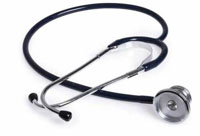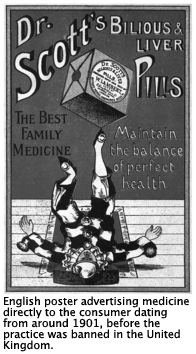 Editor’s Note: Ask The Fiddler is a lifestyle advice column that aims to remedy more chaos and confusion than it creates. Questions may be submitted to us here at Art of the Prank, and good luck.
Editor’s Note: Ask The Fiddler is a lifestyle advice column that aims to remedy more chaos and confusion than it creates. Questions may be submitted to us here at Art of the Prank, and good luck.
Dear Fiddler,
I have a headache that starts in my toes, I”™m allergic to my allergy meds, and my boomerang won”™t come back. What remedy do you suggest?
Barry in D.C.
Dear Barry,
Obviously you need a hearty dose of that legendary scourge of internal corruption, Dr. Fiddler”™s Electro-Cleanse Elixir, completely recyclable and manufactured under strict sanitary conditions when circumstances permit, available at the side door at the conclusion of this essay. Two dollars for the bottle.
 On the other hand, you could undoubtedly improve your condition if you would quit watching TV medical ads and cease asking the Internet for a diagnosis.
On the other hand, you could undoubtedly improve your condition if you would quit watching TV medical ads and cease asking the Internet for a diagnosis.
Those ads and questionable posts can be hazardous to your health. Experts say “exposure to advertising that sells a fantasy of flawless health, perfect skin, clockwork bowels, extended youth and perpetual cheerfulness in the face of disappointment, aging, money woes” “¦ “can create expectations and perceived needs that lead to unnecessary and expensive drug consumption.”
Of course the drug companies argue that their ads are educational. The U.S. and New Zealand are the only countries where drug companies can advertise directly to consumers. It is estimated that every ad dollar spent by Big Pharma yields a four dollar boost in sales of prescription drugs.
 Other countries are a bit more suspicious of Big Pharma”™s educational efforts. Twenty-two of the 27 European Union member states came out against the “information to patients” strand of a European Commission proposal for new pharmaceutical legislation. This despite the fact that the legislation would have limited pharmaceutical companies to using the Internet and specialist health publications to disseminate information.
Other countries are a bit more suspicious of Big Pharma”™s educational efforts. Twenty-two of the 27 European Union member states came out against the “information to patients” strand of a European Commission proposal for new pharmaceutical legislation. This despite the fact that the legislation would have limited pharmaceutical companies to using the Internet and specialist health publications to disseminate information.
There”™s even a term, “cyberchondriac“, that describes a growing number of otherwise rational Internet users who, when they present their symptoms to “Dr Google”, latch on to the worst “diagnosis” thrown back at them.
According to the number crunchers, the United States wasted $418 billion in 2012 on unneeded medications — but this related mostly to costs rather than medications that weren”™t needed, with patients failing to opt for cheaper generics and dealing with the more expensive pharmacies.
How effective are health-advice messages on TV and the Internet? You”™re probably familiar with the recent report concluding that “supplementing the diet of well-nourished adults with (most) mineral or vitamin supplements has no clear benefit and might even be harmful.”
The report was released by a respectable bunch of docs who note that U.S. consumers spent $28 billion on supplements in one recent year. And, “”¦their use is not justified, and they should be avoided”.
But most people would rather self diagnose than check things out with a doctor. According to WebMD,
73 percent of Americans would rather treat themselves than see a doctor.
Not that a doctor would necessarily steer you away from supplements. The same site notes that while just over 50 percent of the general public uses supplements, among doctors the percentage is 72 percent.
The site offers a collection of facts about supplements.
Our societal health hang-ups have spawned “a cesspool of misinformation” fueling “an endless marketing campaign for those peddling the crap health practices,” according to a Huffington Post article.
It is estimated that millions of people in the U.S. suffer from imaginary illnesses, so of course that has become an illness. And there”™s a drug to treat it, according to a Psychology Central article on treating imaginary illness or “health anxiety” with the antidepressant Paroxetine (sold as Paxil or Seroxat)
But maybe you”™ll have the last laugh. Like comedian Spike Mulligan, whose tombstone bears the epitaph: Duirt mé leat go raibh mé breoite, Gaelic for “I told you I was ill.”
Yours Truly,
The Fiddler
Remember our motto here at camp: “If you take advice from The Fiddler, you need advice.” Send comments and questions to: Art of the Prank.
images: The Independent; World Health Organization
